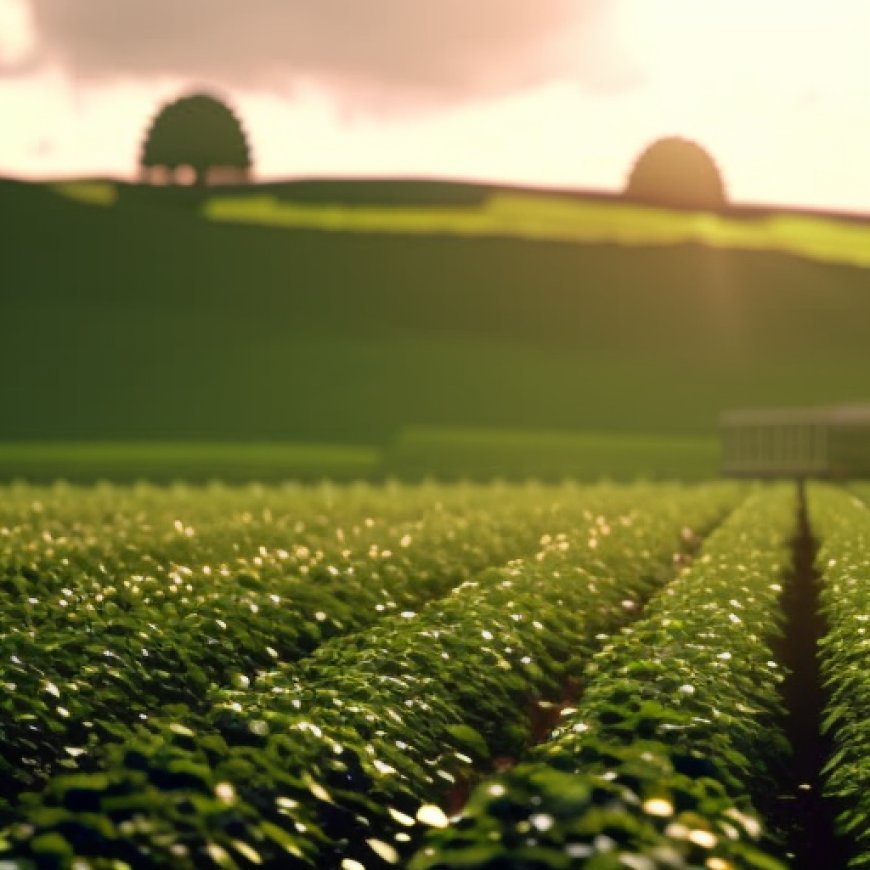AGRICULTURAL DEVELOPMENT
AGRICULTURAL DEVELOPMENT Tribune Online


A speech given in the House of Representatives on 12th April, 1961.

Introduction
Mr. Speaker, Sir, at the outset, I would like to make two observations.
Trade Mission and Agricultural Development
- I notice that the Federal Government, in collaboration with the Regional Governments, is sending a trade mission to several parts of the World – China, Russia, United Kingdom, U.S.A. et cetera. This is in accordance with the suggestion made on more than one occasion by my colleagues and myself on the opposition bench. I hope, I sincerely hope, that those who are in charge of the detailed arrangements of this overseas mission which, judging from the size of its composition and the extent of the globe it plans to cover, is bound to be extensive; I do hope that it is indeed a trade mission and that every minute of the mission is, in the course of it, filled with 60 seconds of hard and favourable bargains struck for Nigeria.
- I am very glad to note that there is almost a meeting of minds between the government and the opposition on the vital importance of agricultural development in our economy. Last year, in the course of my contribution to the debate on the Appropriation Bill, and on one or two other occasions thereafter, I said that the basis of our wealth is agriculture and that, therefore, the first priority should be a bold and rapid development of our agricultural economy. This proposition was not then well received by many Hon. Members including the Hon. Minister of Finance himself. Indeed I was asked by a number of members to go and tell it to the Regional Governments. In a speech delivered last week, however, the Hon. Minister of Finance had this to say – I quote from page 2 of the printed speech: ‘The development of agriculture is fundamental to the progress of the nation; without a flourishing and expanding agriculture, the growth of industry will be retarded.’
Importance of Agricultural Development
- It is clear from other points made on the subject by the Hon. Minister of Finance in the course of his speech, that Government is still regrettably untutored as to what is meant by agricultural development; what its proper role in this basic development should be, and the tremendous fillip which the development of agriculture could give to our economy.
- The Hon. Minister of Finance quotes with approval the following statement by Lord Netherthorpe: ‘No investment by Nigeria herself could yield greater dividends nor contribute more effectively to her economy and industrial development. That is not to say that Nigeria should content herself with a purely agrarian economy. Indeed, the contrary is true, since every increase in the national income and particularly in the level per head increases Nigeria’s attractiveness as a potential market for industrial goods. Thus an expansion in agricultural export by raising the national income could probably do more in a short time to encourage industrilisation than anything else.’
- However, the Hon. Minister of Finance has quoted this passage from the report of the Federation of British Industries on Nigeria’s industrial resources out of context. The report actually states: ‘Apart from investment directly in plantations there is no scope for overseas investment directly in agriculture. Nevertheless, as I see it agriculture is the key to the prospect and rate of Nigeria’s industrilisation.’
Conclusion
The Opposition emphasizes that the bed-rock of our economy in this country is the development of our agriculture. The Ashby Commission also highlights the importance of agriculture, stating that three out of every four Nigerians work on the land and that seventeen shillings out of every pound earned from Nigerian exports come from agricultural products. Investment in agricultural improvement and agricultural education could increase Nigeria’s yield. Agriculture not only provides occupation for a significant portion of the working population but also serves as a social security system and contributes to government revenue.
Continues next week.
Read also from Nigerian Tribune
SDGs, Targets, and Indicators Analysis
1. Which SDGs are addressed or connected to the issues highlighted in the article?
- SDG 2: Zero Hunger
- SDG 8: Decent Work and Economic Growth
- SDG 9: Industry, Innovation, and Infrastructure
- SDG 12: Responsible Consumption and Production
The article discusses the importance of agricultural development in Nigeria’s economy, which is directly related to SDG 2 – Zero Hunger. It also mentions the growth of industry and the need for investment in agriculture, which connects to SDG 8 – Decent Work and Economic Growth and SDG 9 – Industry, Innovation, and Infrastructure. Additionally, the article touches on the significance of responsible consumption and production, aligning with SDG 12.
2. What specific targets under those SDGs can be identified based on the article’s content?
- SDG 2.3: By 2030, double the agricultural productivity and incomes of small-scale food producers.
- SDG 8.2: Achieve higher levels of economic productivity through diversification, technological upgrading, and innovation.
- SDG 9.3: Increase the access of small-scale industrial and other enterprises to financial services.
- SDG 12.3: By 2030, halve per capita global food waste at the retail and consumer levels and reduce food losses along production and supply chains.
The article emphasizes the need for agricultural development to increase productivity and incomes for small-scale food producers, aligning with SDG 2.3. It also highlights the importance of economic productivity through diversification, technological upgrading, and innovation, which relates to SDG 8.2. Additionally, the article mentions the access of small-scale enterprises to financial services, connecting to SDG 9.3. Lastly, it touches on the reduction of food waste and losses, which corresponds to SDG 12.3.
3. Are there any indicators mentioned or implied in the article that can be used to measure progress towards the identified targets?
- Indicator 2.3.1: Volume of production per labor unit by classes of farming/pastoral/forestry enterprise size.
- Indicator 8.2.1: Annual growth rate of real GDP per employed person.
- Indicator 9.3.1: Proportion of small-scale industries in total industry value added.
- Indicator 12.3.1: Food loss index.
The article does not explicitly mention indicators; however, based on the identified targets, the following indicators can be used to measure progress. Indicator 2.3.1 measures the volume of production per labor unit, indicating increased agricultural productivity. Indicator 8.2.1 tracks the annual growth rate of real GDP per employed person, reflecting economic productivity. Indicator 9.3.1 assesses the proportion of small-scale industries in total industry value added, indicating improved access to financial services for small-scale enterprises. Indicator 12.3.1 measures the food loss index, reflecting progress in reducing food waste and losses.
4. Table: SDGs, Targets, and Indicators
| SDGs | Targets | Indicators |
|---|---|---|
| SDG 2: Zero Hunger | 2.3: By 2030, double the agricultural productivity and incomes of small-scale food producers. | 2.3.1: Volume of production per labor unit by classes of farming/pastoral/forestry enterprise size. |
| SDG 8: Decent Work and Economic Growth | 8.2: Achieve higher levels of economic productivity through diversification, technological upgrading, and innovation. | 8.2.1: Annual growth rate of real GDP per employed person. |
| SDG 9: Industry, Innovation, and Infrastructure | 9.3: Increase the access of small-scale industrial and other enterprises to financial services. | 9.3.1: Proportion of small-scale industries in total industry value added. |
| SDG 12: Responsible Consumption and Production | 12.3: By 2030, halve per capita global food waste at the retail and consumer levels and reduce food losses along production and supply chains. | 12.3.1: Food loss index. |
Behold! This splendid article springs forth from the wellspring of knowledge, shaped by a wondrous proprietary AI technology that delved into a vast ocean of data, illuminating the path towards the Sustainable Development Goals. Remember that all rights are reserved by SDG Investors LLC, empowering us to champion progress together.
Source: tribuneonlineng.com

Join us, as fellow seekers of change, on a transformative journey at https://sdgtalks.ai/welcome, where you can become a member and actively contribute to shaping a brighter future.







